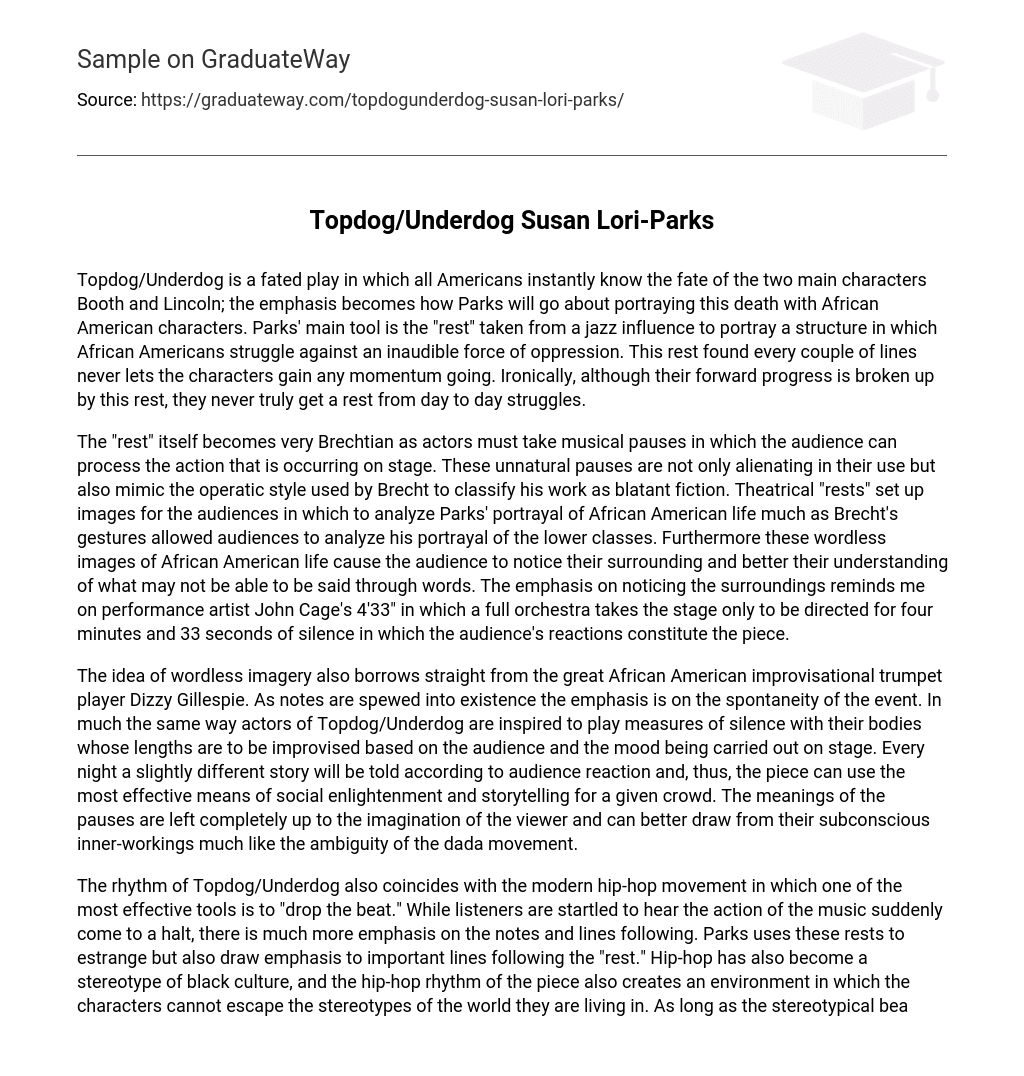Topdog/Underdog is a fated play in which all Americans instantly know the fate of the two main characters Booth and Lincoln; the emphasis becomes how Parks will go about portraying this death with African American characters. Parks’ main tool is the “rest” taken from a jazz influence to portray a structure in which African Americans struggle against an inaudible force of oppression. This rest found every couple of lines never lets the characters gain any momentum going. Ironically, although their forward progress is broken up by this rest, they never truly get a rest from day to day struggles.
The “rest” itself becomes very Brechtian as actors must take musical pauses in which the audience can process the action that is occurring on stage. These unnatural pauses are not only alienating in their use but also mimic the operatic style used by Brecht to classify his work as blatant fiction. Theatrical “rests” set up images for the audiences in which to analyze Parks’ portrayal of African American life much as Brecht’s gestures allowed audiences to analyze his portrayal of the lower classes. Furthermore these wordless images of African American life cause the audience to notice their surrounding and better their understanding of what may not be able to be said through words. The emphasis on noticing the surroundings reminds me on performance artist John Cage’s 4’33” in which a full orchestra takes the stage only to be directed for four minutes and 33 seconds of silence in which the audience’s reactions constitute the piece.
The idea of wordless imagery also borrows straight from the great African American improvisational trumpet player Dizzy Gillespie. As notes are spewed into existence the emphasis is on the spontaneity of the event. In much the same way actors of Topdog/Underdog are inspired to play measures of silence with their bodies whose lengths are to be improvised based on the audience and the mood being carried out on stage. Every night a slightly different story will be told according to audience reaction and, thus, the piece can use the most effective means of social enlightenment and storytelling for a given crowd. The meanings of the pauses are left completely up to the imagination of the viewer and can better draw from their subconscious inner-workings much like the ambiguity of the dada movement.
The rhythm of Topdog/Underdog also coincides with the modern hip-hop movement in which one of the most effective tools is to “drop the beat.” While listeners are startled to hear the action of the music suddenly come to a halt, there is much more emphasis on the notes and lines following. Parks uses these rests to estrange but also draw emphasis to important lines following the “rest.” Hip-hop has also become a stereotype of black culture, and the hip-hop rhythm of the piece also creates an environment in which the characters cannot escape the stereotypes of the world they are living in. As long as the stereotypical beat goes on, Booth and Lincoln are bound to be dead elements of a racist history.





